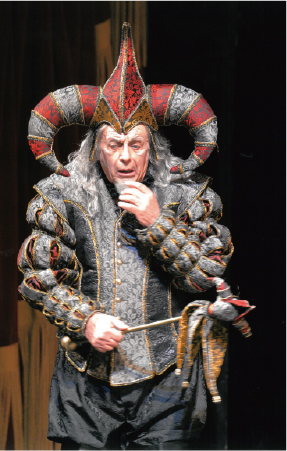この秋、『伝説が最後の来日!』この宮廷オペラを見逃すな!
Column|2025.8.24
Text_ Kotaro Sakata
芸術の秋という言葉通り、この秋、美術館催し、クラシックコンサート、オペラ等、目白押しである。世界4大オーケストラの内3つが10月に来日を果たし連日連夜コンサートを開催し、東京文化会館改修前ラストの引越公演であるウィーン国立歌劇場が来日し、チケット争奪戦が繰り広げられている。その中に、ひと際注目をしたい公演がある、レジェンドバリトン歌手で、80年代以降黄金の時代を長らく牽引したレオ・ヌッチが最後の来日公演を果たす。それも、彼の十八番オペラ《リゴレット》、《椿姫》を演奏会形式で、ミラノより室内楽を引っ提げての公演である。彼の伝説は数知れず、3大テノールが一世を風靡したころの相方はレオ・ヌッチが担っていた。黒光りした、深く輝くヴェルディバリトンの歌声は、衰えることをしらない。コロナ禍中にミラノ・スカラ座公演で来日予定が中止になり、昨年、ラスト公演と言われた2回の公演が空前絶後の大成功で、バリトーノブリランテは健在どころか、輝きを増すようだった。これで見納めかと思いながら、2公演を見終わり、彼に対する想い出を心に秘めつつ、まだまだ歌えるのに!という心残りが無かったと言えばうそになる。そんな時にビッグニュースが飛び込んで来た。素晴らしいキャストが奇跡的にスケジューリング出来て、一日限りのヌッチによるオペラダイジェスト公演が実現する。
これが、本当に最後の来日である。ヌッチを長年見続けて彼の絶対完璧主義は理解しているつもりだ。その彼がラスト公演に日本を選び、至高の音響を誇るサントリーホールでオペラ公演を行う。これは、何が何でも行かねばならない。そして、歴史の瞬間を見届けよう。
A legend’s last visit to Japan this fall! Don’t miss this royal opera.
As the “autumn of the arts” descends, Japan’s cultural scene is bustling with museum exhibitions, concerts, and operas. October is especially vibrant, with three of the world’s top four orchestras performing, and the Vienna State Opera’s final Tokyo Bunka Kaikan engagement sparking intense ticket demand. Amidst this, legendary baritone Leo Nucci, a key figure in opera’s golden age since the 80s, is making his final visit to Japan. He’ll perform his signature operas, Rigoletto and La traviata, in concert with a Milanese chamber orchestra.
Nucci’s career is full of legends; he was often the preferred partner to the Three Tenors. His rich Verdi baritone voice remains powerful, showing no signs of weakening. Despite a pandemic cancellation, his two “final” concerts last year were a huge success, making his “baritono brillante” seem even more brilliant. Though I thought those were my last chances, it’s false to say I felt no regret. Then, big news arrived: a miraculous cast scheduling allows Nucci to perform an opera digest for one night only.
This truly is his last visit. Having followed Nucci for years, I understand his absolute perfectionism. His choice of Japan for his farewell performance at Suntory Hall, renowned for its acoustics, makes this an unmissable, historic moment.

Roberto Ricci
凛々しい役柄も
品があるヌッチでした。

Piccini Fesより提供
(c)foto Mirella Verile
伝説のバリトン歌手
レオ・ヌッチを見届けましょう。

Nucci_LuisaMiller
©RobertoRicci
伝説のヴェルディバリトン!真骨頂。
《椿姫》ジェルモン役の見納め。

ヌッチと言えば“リゴレット”
この役が見られるラスト公演。
●公演日時:2025年11月9日(日) 12:45開場 13:30開演
●場所:サントリーホール 大ホール
●曲目(予定)
ヴェルディ:歌劇《椿姫》ハイライト
ヴェルディ:歌劇《リゴレット》ハイライト
【公演内容紹介】
ヌッチ企画監修の宮廷スタイル・コンサートです。バリトン、ソプラノ、テノールの出演で、演奏家はミラノからの精鋭8名が来日します。1800年代のオペラは、宮廷劇場やコンサートホールで、小規模な編成の楽器で行われることがありました。ヴェルディは「ファルスタッフ」の縮小版の楽譜を書き、レオンカヴァッロは「道化師」の縮小版の楽譜を書いており、この宮廷スタイルが基となっています。
『レオ・ヌッチ最後の来日』 https://r-t.jp/nucci
●お問合先:楽天チケット
https://r-t.jp/ask
●TEL 050-5893-9366(受付時間 10:00~17:00 )



